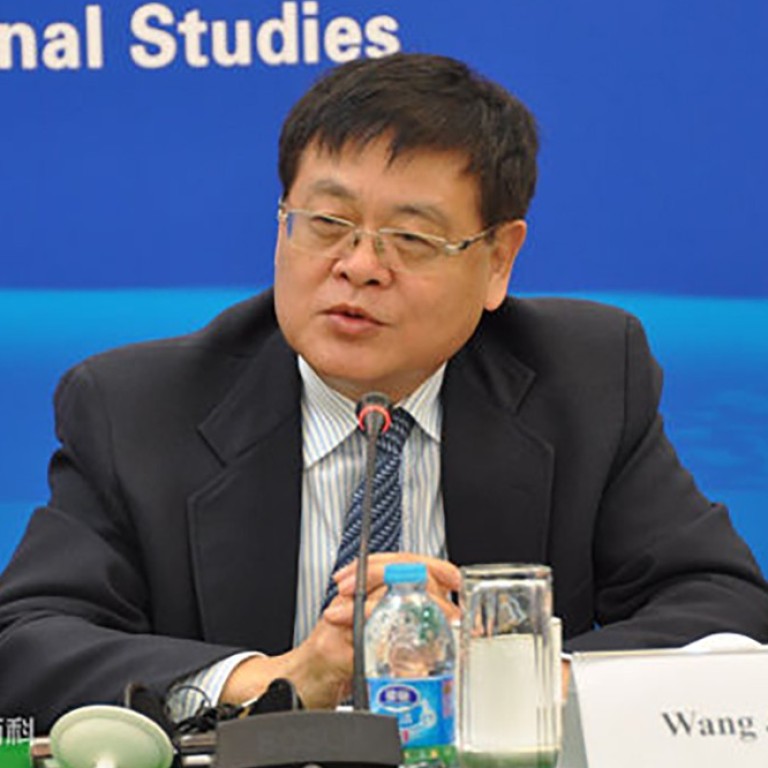
China should try to keep talking and stop looking for fights in US trade war, says leading professor
- Peking University’s dean of international relations Wang Jisi warns that country should be ‘more proactive’ about promoting its cause and goals
China should be more proactive in pursuing trade talks with Washington instead of emphasising its willingness to keep on fighting the tariff war, a leading academic warned on Tuesday.
Wang Jisi, dean of international relations at Peking University, told a forum he disagreed with China’s official narrative towards the trade war – that it is open to talks but remains determined to “fight till the end” – and argued its policies should be more consistent.
“The statement looks valid at the first glance, but it says nothing about China's preferences, whether it wants to fight or talk,” Wang argued.
“I of course, think our preference should be talking, not fighting,” Wang told the World Peace Forum at Tsinghua University.
“I think we should be more proactive in presenting China's cause and goals to the United States.”
BlackRock sees weak 2nd-half China growth despite stimulus amid trade war
Beijing’s official line has been repeatedly amplified by state media since talks with Washington broke down in May and includes frequent messages about the country’s ability to withstand the pain the trade war could cause – a topic that had previously been given minimal coverage.
But Wang, one of the most prominent US specialists in China, said he did not agree with this position.
He also said that in general policies towards the US should be “stable and consistent” rather than shifting “every time there’s a change of policies in Washington”.
He said China should also be more proactive pursuing cooperation with Washington over issues that also concern its national interests, such as Iran’s nuclear programme, the rise of right-wing politics in Europe and the rise of extremism in Southeast Asia.
Wang's comments came in response to a question about whether Chinese scholars ever disagree with Beijing's foreign policy and its approach to US-China relations.
A ‘ray of hope’ in US-China trade war, says Beijing’s envoy to Malaysia
Wang said Chinese scholars did raise different opinions about the relationship with the US, but not openly.
“In a country of such size and on matters of such importance, of course there are different opinions, but we have our own channels to voice our concerns,” Wang said.
But he added that as a member of the Communist Party, he was obliged to toe the party line in public discussions.

